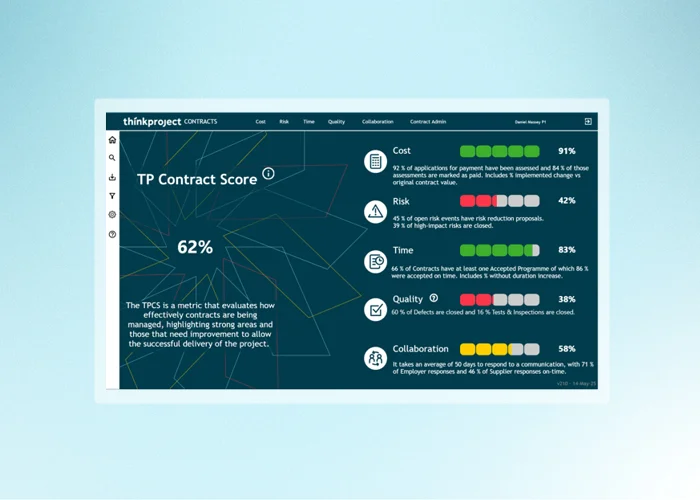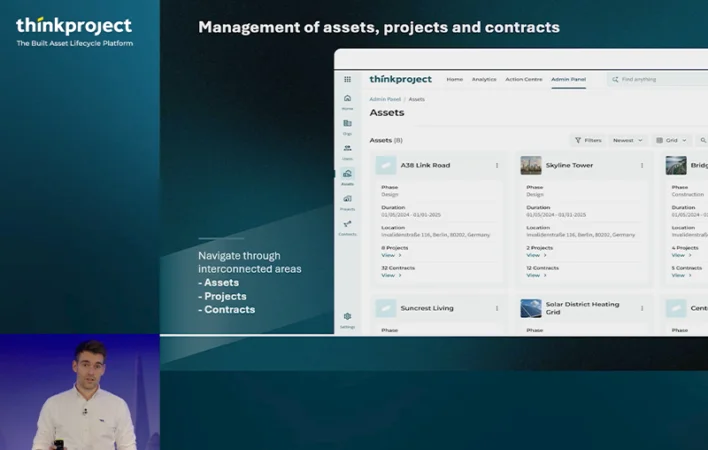
A Guide to JCT Contracts: What They Are and How to Manage Them
Whether you’re a contractor managing residential extensions or a developer overseeing complex commercial projects, JCT contracts are likely a part of your work. These standard form contracts are some of the most utilised in the UK construction industry, offering a structured legal framework for managing contractual obligations and risks.
In this guide, we’ll explain what JCT contracts are, how they are used, and—most importantly—how to manage them effectively to keep your projects on track and your business protected.
What are JCT contracts?
JCT contracts, published by the Joint Contracts Tribunal, are a suite of standard construction contracts used across the UK.
Established in 1931, the JCT provides a legally binding contracts framework that clearly define the obligations of employers, contractors, and subcontractors on a construction project. JCT contracts have been designed to provide clarity, reduce disputes, and make project delivery more efficient.
Why JCT contracts?
As JCT contracts have been designed for the construction industry in particular, they gained traction among UK construction professionals. Their structure offers several common benefits, relevant to our industry:
- Standardised and reliable: Familiar across the sector, reducing legal costs and confusion.
- Legally tested: Built on decades of legal precedent and case law.
- Flexible: Multiple forms tailored to project size, complexity, and procurement route.
- Dispute resolution: Clear procedures for dealing with disagreements.

Common types of JCT contracts
Since JCT contracts have been developed based on legal precedents and with the peculiarities of the construction sector in mind, there are now several types of contract forms available. Depending on your project type and procurement strategy, there’s likely one to suit. Here are some examples:
Contract Forms | Ideal Use Case |
|---|---|
Minor Works (MW) | Small residential or commercial projects, like home extensions |
Intermediate Contract (IC) | Medium-sized projects with moderate complexity |
Standard Building Contract (SBC) | Traditional complex projects with a clear scope of work |
Design and Build (D&B) | Projects where the contractor takes on both design and construction |
Homeowner Contract | Domestic projects for non-commercial clients |
Management Contract | Projects requiring multiple trade contracts managed by one contractor |
Major Project Construction | For large, complex, high-value projects, often with multiple stakeholders |
Target Cost | Cost-based with shared savings/losses |
JCT-CE | Collaborative, team-focused delivery |
Repair & Maintenance | For routine or minor ongoing works |
JCT contracts in real-world scenarios
In order to choose the most suitable type of contract, you need to understand how they work in real-world situations. Below are some project examples and the JCT contracts best suited to each.
Commercial Office Development
Scenario: A developer commissions a construction firm to build a six-storey office block with modern energy-efficient features. The developer wants a single point of responsibility for both design and construction, enabling faster delivery and less coordination overhead.
Contract Used: JCT Design and Build Contract (D&B)
Why Use This Contract:
- D&B contracts streamline delivery by combining design and build in one entity.
- The contractor assumes responsibility for completing the project as specified in the employer’s requirements.
- It reduces risk for the employer and simplifies communication.
How it works:
The contractor manages design and its expected performance, ensuring the building meets both design and performance expectations. They’re also in control of the sequencing of work and any design-related changes.
Public Sector School Expansion
Scenario: A local authority appoints a contractor to deliver a large school expansion, with complete design and specifications provided by the client’s design team. The work involves complex phasing to minimize disruptions to school operations.
Contract Used: JCT Standard Building Contract (SBC)
Why Use This Contract:
- The Standard Building Contract supports projects where the client retains control over design.
- It is ideal for large projects with detailed documentation and the need for a strong contract administrator role.
- It includes detailed procedures for variations, extensions of time, and valuation of work.
How it works:
The contractor works closely with the architect and quantity surveyor. Delays due to weather or access restrictions are managed through the extension of time provision in the contract. Payment mechanism is managed by the contract administrator, ensuring fairness and impartiality for both parties.
Mixed-Use Development with Multiple Subcontractors
Scenario: A real estate developer is building a retail and entertainment park plus a hotel and appoints a management contractor to oversee a series of separate trade contractors. Some units are being let with bespoke fit-out needs, and construction process needs to be fast-tracked.
Contract Used: JCT Management Contract
Why Use This Contract:
- The Management Contract allows overlapping design and build phases.
- It gives the client control over key trade packages while outsourcing their coordination.
- Best suited to large, complex projects with phased delivery.
How it works:
The management contractor appoints and manages trade contractors for specialist packages such as groundwork, cladding, roofing, and fit-out. The client benefits from flexible phasing and tenant-specific customization. The management contractor handles site coordination and manages the entire programme risk.
Tips on managing JCT contracts effectively
Knowing the contract is one thing; managing it is another. Here’s how construction professionals can ensure smooth delivery under JCT contracts.
- Keep accurate records: Maintain detailed records of site activity, communications, and changes; clear documentation is crucial for resolving disputes and validating claims.
- Manage variations properly: Always confirm variations in writing, submit costs promptly, and update the program and budget to reflect the approved changes.
- Track programme and request Extensions of Time early: Identify delays as they happen and submit EoT requests with evidence as soon as possible to avoid liquidated or unliquidated damages.
- Stay on top of payments: Follow the contract’s payment schedule. Submit applications on time and keep track of payment notices, due dates, and any deductions.
- Be ready for disputes, but aim to avoid them: Whilst formal dispute resolution routes exist, most disputes can be avoided with clear communication, accurate records, and timely contract compliance.
- Use specialised software: Managing JCT contracts with specialised software streamlines the entire contract administration process by digitising key tasks such as document control, payment tracking, variation management, and extension of time procedures.

Why manage JCT Contracts with specialised software?
Managing JCT contracts with specialised software offers parties greater accuracy, efficiency, and control. It automates key tasks like issuing payment notices, tracking variations, and managing deadlines, reducing the risk of errors and missed obligations. Centralised document storage, real-time dashboards, and audit trails improve visibility, collaboration, and compliance, while also strengthening the company’s position in the event of disputes.
Overall, contract management software streamlines JCT processes and helps ensure projects run smoothly and in line with contractual requirements.
Thinkproject Commercial & Contract Management
Through its Built Asset Lifecycle Platform, Thinkproject offers an integrated platform covering contract, cost, and tender management. This mix of solutions aims to enhance financial control and project performance in the construction sector.
Thinkproject’s contract management solution is focused on event‑driven, collaborative contract management. This approach allows both the management of standard types of contracts such as JCT contracts, and any other custom forms of contracts. Custom contracts can be configured based on a customer specific requirements.
Curious to learn more about Thinkproject CONTRACTS?





